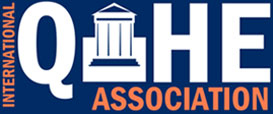In today's globalized world, where education plays a pivotal role in shaping careers and fostering international mobility, the importance of educational accreditation cannot be overstated. Quality Assurance in Pre-Tertiary and Higher Education (QAHE), as an International Association for Quality Assurance, recognizes the significance of accreditation in Europe. This article aims to shed light on why educational accreditation matters in Europe and the role QAHE plays in ensuring quality and standards.
Ensuring Quality Education:
Educational accreditation serves as a mechanism to ensure quality and standards in educational institutions across Europe. It provides an objective evaluation of educational programs, curriculum, faculty qualifications, infrastructure, and learning outcomes. Accreditation promotes transparency and accountability, allowing students, parents, and other stakeholders to make informed decisions about educational institutions.
QAHE, as an internationally recognized accreditation body, collaborates with educational institutions to assess and validate their programs and services. By adhering to rigorous evaluation criteria and quality benchmarks, QAHE helps institutions maintain high standards and continuously improve the quality of education provided.
Enhancing International Recognition:
Accreditation plays a crucial role in enhancing the international recognition and acceptance of educational qualifications. In Europe, where academic mobility is prevalent, having accredited credentials can significantly facilitate the recognition of qualifications by employers, universities, and professional bodies in different countries.
QAHE's accreditation process ensures that educational institutions align with international standards and best practices. This alignment enhances the credibility and global recognition of qualifications awarded by accredited institutions, thereby increasing opportunities for students and graduates to pursue further education or employment internationally.
Facilitating Student Mobility:
Educational accreditation plays a pivotal role in facilitating student mobility within Europe. European countries have implemented the European Higher Education Area (EHEA) framework, which promotes student mobility through credit transfer and recognition systems such as the European Credit Transfer and Accumulation System (ECTS).
QAHE's accreditation helps educational institutions align their programs with EHEA guidelines, promoting seamless credit transfer and recognition. This harmonization fosters student mobility by enabling students to transfer between accredited institutions without losing academic progress, ensuring a smooth educational experience.
Protecting Consumer Rights:
Accreditation acts as a safeguard for students and parents, protecting their rights and interests. Accredited institutions are bound to meet specific quality standards, ensuring that students receive the education they expect and deserve. Accreditation also provides a mechanism for handling complaints and grievances, ensuring transparency and fairness in addressing issues that may arise.
QAHE's accreditation process includes comprehensive evaluations that assess an institution's commitment to student welfare, ethical practices, and compliance with legal requirements. This commitment to student protection strengthens the confidence of prospective students and their families in choosing accredited educational institutions.
Conclusion:
Educational accreditation holds immense value in Europe, and QAHE plays a pivotal role in ensuring quality assurance and international recognition. By adhering to rigorous evaluation processes and benchmarks, QAHE helps educational institutions maintain high standards, facilitates student mobility, enhances international recognition, and protects the rights of students and parents.
As the educational landscape continues to evolve, the role of accreditation becomes increasingly crucial. QAHE's commitment to quality assurance in pre-tertiary and higher education in Europe contributes significantly to the advancement of education and the success of students across the continent.





Comments